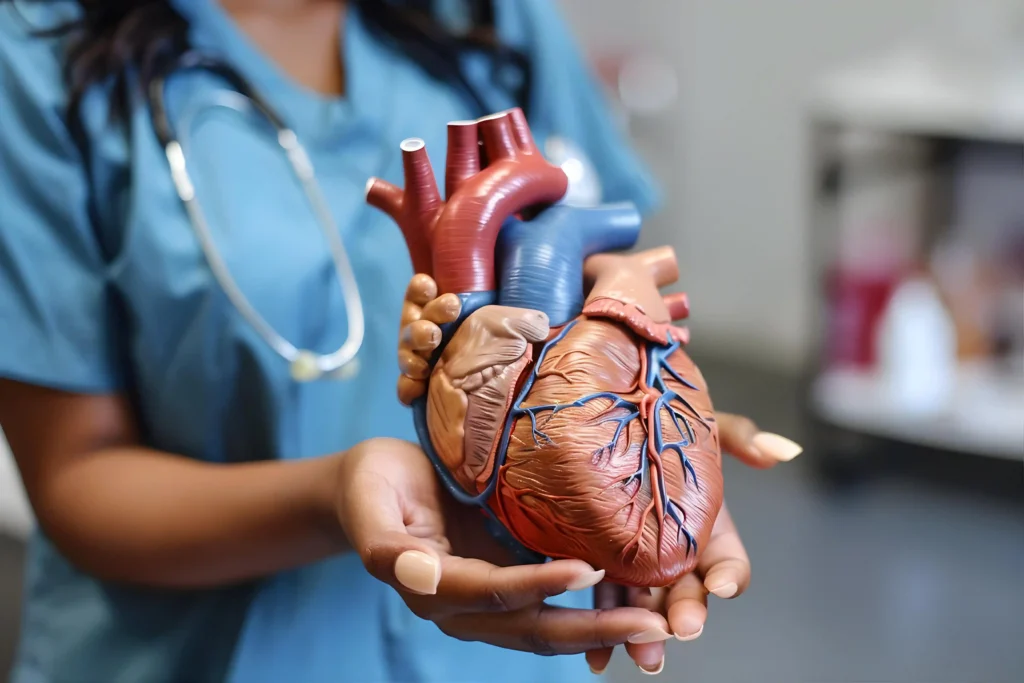Follow-up tips after your local Cardiologist visit
Follow-up tips after your local Cardiologist visit
Blog Article
Recognizing the Value of Cardiology in Modern Medical Care Providers
Cardiology plays a crucial duty in modern-day health care, especially as heart illness remains to be the leading reason for death worldwide. Breakthroughs in diagnostics and treatment have actually changed client care, enabling earlier interventions and boosted outcomes. Furthermore, the change in the direction of preventative cardiology equips individuals to manage their health proactively. As technology remains to evolve, the assimilation of innovative services might further redefine cardiology's impact on public wellness, triggering a better exam of emerging trends and their ramifications.
The Prevalence of Cardiovascular Disease and Its Influence On Public Wellness
Heart disease remains the leading reason of fatality globally, its influence expands much past specific people to affect public wellness systems and economies. The high frequency of heart problem positions a significant stress on healthcare resources, necessitating boosted financing for avoidance, therapy, and rehab programs. Public wellness initiatives should attend to threat elements such as weight problems, smoking, and inactive way of lives, which add greatly to the climbing occurrence of heart conditions.Moreover, the economic concern connected with cardiovascular disease is tremendous, encompassing not just direct medical costs yet also indirect costs associated with lost efficiency and early death. Communities encounter challenges in managing these expenses, frequently leading to differences in health care access and end results. As the populace ages and lifestyle-related threats proceed to intensify, the necessity for reliable cardiology interventions becomes extremely important. Subsequently, addressing heart illness is not just a matter of individual health yet likewise a crucial public health and wellness top priority.
Advancements in Heart Diagnostics and Imaging Techniques
Current developments in cardiac diagnostics and imaging techniques have reinvented the field of cardiology, improving the ability to identify and keep track of heart problem. Methods such as cardiac MRI, CT angiography, and echocardiography have actually ended up being significantly sophisticated, supplying thorough pictures of heart structures and functions. These methods enable the very early identification of problems like coronary artery disease, cardiac arrest, and valvular disorders.Moreover, improvements in non-invasive diagnostics, such as wearable modern technology and remote surveillance tools, have actually encouraged people and doctor. These devices help with real-time tracking of heart rhythms and other necessary signs, bring about timely treatments. Furthermore, expert system is being incorporated into imaging analysis, improving precision and effectiveness in diagnosis.
Innovations in Therapy Alternatives for Heart Conditions
Recent innovations in cardiology have actually resulted in substantial developments in treatment choices for heart disease. These consist of advanced surgical strategies that improve step-by-step end results and arising drugs that offer brand-new avenues for treatment. As the field evolves, these innovations play a crucial role in boosting individual care and end results.
Advanced Surgical Techniques
Advancements in surgical techniques have changed the landscape of cardiology, offering brand-new wish for individuals with heart disease. Minimally intrusive treatments, such as catheter-based interventions, have substantially minimized recovery times and hospital keeps. Techniques like robotic-assisted surgery improve precision, permitting doctors to browse complicated physiological structures with higher accuracy. Additionally, advancements in imaging innovation assist in real-time visualization during treatments, boosting end results. Transcatheter aortic shutoff substitute (TAVR) exhibits a breakthrough in treating aortic stenosis, making it possible for valve substitute without open-heart surgical treatment. Furthermore, hybrid techniques that combine medical and catheter-based approaches provide tailored services for various heart problems. These innovative medical techniques not just improve person security yet likewise expand therapy alternatives, underscoring the critical role of development in modern cardiology techniques.
Arising Therapies and medications
As the landscape of cardiology continues to advance, emerging medications and treatments play a critical role in improving treatment alternatives for heart disease. Innovations such as novel anticoagulants and progressed lipid-lowering agents have changed the monitoring of cardiovascular diseases, substantially reducing client morbidity and death. Additionally, the development of genetics treatments and regenerative medication uses encouraging opportunities for dealing with problems formerly deemed incurable. Clinical trials are constantly revealing the effectiveness of these therapies, pressing the limits of typical treatments. The combination of digital wellness modern technologies assists in individualized medication, enabling for customized treatment strategies based on genetic and lifestyle aspects. Collectively, these advancements emphasize the dynamic nature of cardiology, improving patient results and redefining standards of treatment in modern health care.
The Role of Preventive Cardiology in Client Treatment
Preventative cardiology plays an essential function in person treatment by concentrating on the identification of danger elements that add to heart disease. With way of life alteration techniques and very early detection techniques, health care carriers can efficiently minimize the incidence of cardio events - Cardiology Jupiter. This positive strategy not just enhances client end results however additionally advertises lasting health and wellness
Risk Element Identification
While heart diseases stay a leading source of morbidity and death worldwide, efficient risk factor recognition serves as a keystone of precautionary cardiology. Identifying threat factors such as hypertension, diabetes mellitus, household, and hyperlipidemia history is necessary for very early intervention. Health care experts use different screening methods to evaluate these elements, permitting customized safety nets. Furthermore, comprehending a client's way of living options, such as smoking cigarettes and physical inactivity, further notifies threat analyses. This detailed assessment makes it possible for clinicians to establish tailored care plans focused on mitigating dangers. By focusing on risk aspect recognition, medical care systems can enhance individual results and lower the total worry of heart diseases, ultimately adding to boosted public health and wellness methods and resource allotment.
Way Of Life Alteration Techniques
A plethora of More Bonuses studies highlights the important function of way of living modification approaches in decreasing heart disease danger. These techniques include dietary modifications, boosted exercise, cigarette smoking cessation, and weight administration. By embracing a heart-healthy diet regimen abundant in fruits, vegetables, whole grains, and lean proteins, people can lower cholesterol levels and blood stress. Regular exercise reinforces the heart and improves total cardiovascular health and wellness. In addition, giving up smoking significantly minimizes the threat of heart problem and enhances recuperation prices for those with status quo. Weight administration even more adds to cardio health by alleviating other threat elements such as diabetic issues and high blood pressure. Executing these lifestyle alters not only advertises specific health however likewise functions as a cornerstone of preventative cardiology in individual care.
Very Early Discovery Strategies
Way of life adjustments substantially contribute to decreasing cardiovascular condition dangers, but they are most effective when coupled with very early detection methods. Preventive cardiology highlights the importance of determining prospective heart issues before they intensify into severe problems. Techniques such as blood pressure surveillance, read more cholesterol screening, and advanced imaging modern technologies like echocardiograms play essential roles in examining cardiovascular health. Biomarkers and hereditary testing also boost the accuracy of early detection, enabling customized preventive strategies. Regular cardiac risk assessments empower doctor to interfere proactively, possibly avoiding heart attacks and strokes (Cardiology). By integrating these very early detection techniques into regular care, patients can gain from timely way of life interventions and targeted treatments, inevitably enhancing and boosting results lifestyle
Integrating Modern Technology Into Cardiology Practices
As innovations in modern technology continue to improve different areas, the combination of cutting-edge devices and systems right into cardiology techniques has actually ended up being crucial for boosting individual treatment and results. Telemedicine systems permit cardiologists to check individuals remotely, boosting accessibility to care while reducing the problem on health care facilities. Wearable devices, such as smartwatches, make it possible for continuous heart price tracking, informing both individuals and physicians to potential issues in real-time. Additionally, expert system (AI) is being used to evaluate substantial amounts of cardiac information, assisting in early diagnosis and tailored therapy plans. Advanced imaging strategies, consisting of 3D echocardiography, enhance visualization of heart structures, bring about more precise interventions. Electronic health records (EHRs) improve client info monitoring, ensuring that cardiologists have instant accessibility to crucial information. Together, these technical developments are transforming cardiology, advertising proactive administration and boosted health and wellness results for patients with cardio problems.
The Significance of Client Education and Involvement
Individual education and involvement play a pivotal duty in the management of cardio health. By furnishing patients with expertise about their conditions, therapy choices, and lifestyle changes, doctor equip individuals to take an active function in their care. This proactive approach can lead to enhanced adherence to prescribed drugs, nutritional changes, and workout programs, eventually decreasing the danger of complications.Engagement additionally cultivates a strong patient-provider relationship, encouraging open communication and trust. When individuals really feel notified and involved, they are most likely to voice problems and ask inquiries, which can result in far better scientific results. Additionally, instructional sources, such as workshops or electronic systems, can enhance understanding and promote self-management methods. Overall, focusing on client education and learning and interaction is necessary for boosting cardiovascular wellness, improving high quality of life, and minimizing medical care expenses connected with heart diseases.
Future Fads in Cardiology and Their Possible Impact

Often Asked Concerns
What Lifestyle Changes Can Lower Heart Disease Danger?
The current concern addresses way of life adjustments that can considerably lower cardiovascular disease risk. Cardiology care. Adopting a balanced diet plan, involving in normal exercise, keeping a healthy weight, managing tension, and preventing tobacco can notably boost cardio wellness
How Can I Identify Early Signs of Heart Issues?
Recognizing early indications of heart troubles involves tracking symptoms such as upper body discomfort, lack of breath, tiredness, and irregular heart beat. Timely awareness of these signs can prompt required medical examination and treatment for much better results.
What Are the Differences In Between Cardiologists and Cardiac Surgeons?
The distinctions between cardiologists and cardiac cosmetic surgeons hinge on their roles; cardiologists largely manage and detect heart disease through non-invasive methods, while heart surgeons perform medical procedures to correct architectural heart issues. Each plays a vital, unique duty.

Exactly how Often Should I Get My Heart Health Checked?
The regularity of heart like it checkup varies based on individual threat elements. Generally, grownups should undertake evaluations each to 2 years, while those with status quo may need even more frequent evaluations as recommended by medical care professionals.
What Role Does Genes Play in Heart Condition Threat?
Genes significantly influences heart disease threat, with domestic patterns indicating acquired problems. Particular genetics can incline individuals to hypertension, cholesterol issues, and various other cardio troubles, highlighting the relevance of hereditary screening in reviewing heart health and wellness. Heart illness remains the leading cause of fatality globally, its influence extends much beyond private people to affect public health systems and economies. Public health initiatives should resolve danger factors such as excessive weight, cigarette smoking, and less active way of livings, which add greatly to the rising occurrence of heart conditions.Moreover, the financial burden associated with heart condition is immense, encompassing not only straight clinical costs yet likewise indirect expenditures associated to shed efficiency and premature death. Preventative cardiology plays a necessary role in patient treatment by focusing on the identification of danger aspects that add to heart illness. Synthetic intelligence (AI) and machine understanding are improving diagnostics and client surveillance, enabling very early discovery of heart diseases. The differences between cardiologists and heart cosmetic surgeons exist in their roles; cardiologists largely manage and detect heart conditions with non-invasive approaches, while cardiac doctors execute medical treatments to remedy architectural heart problems.
Report this page